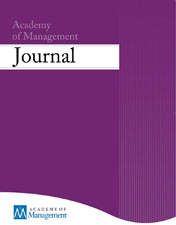Academic articles
Practitioner articles
Working papers
Books
Book chapters
Case studies
Other publications
Subject(s)
Human resources management/organizational behavior
Keyword(s)
Executive coaching, boundaries in coaching, rescuer syndrome
Secondary Title
Complex situations in coaching: A critical case-based approach
Pages
56–59
ISBN
978-0367173234
Subject(s)
Economics, politics and business environment
Keyword(s)
Digital transformation, sovereignty, lawmaking
The article addresses the question of the digital dependencies of the public sector and the way in which government performs its tasks in the digital sphere. It examines the use of ICT and digital platforms, the development of digital competencies in public authorities and the overall ability to manage digital sovereignty. In particular, it highlights the role of the law and proposes three approaches for shaping regulation to strengthen digital sovereignty.
[Der Beitrag beschäftigt sich mit der Frage der Abhängigkeiten des Staates und staatlicher Aufgabenerfüllung im digitalen Raum. Er untersucht die Nutzung von IKT und digitalen Plattformen, die Kompetenzentwicklung in Behörden und die übergreifende Fähigkeit zum Management digitaler Souveränität. Besonders intensiv beleuchtet er die Rolle des Rechts und schlägt drei Ansätze vor, die Weiterentwicklung der Regulierung zur Stärkung digitaler Souveränität zu nutzen.]
[Der Beitrag beschäftigt sich mit der Frage der Abhängigkeiten des Staates und staatlicher Aufgabenerfüllung im digitalen Raum. Er untersucht die Nutzung von IKT und digitalen Plattformen, die Kompetenzentwicklung in Behörden und die übergreifende Fähigkeit zum Management digitaler Souveränität. Besonders intensiv beleuchtet er die Rolle des Rechts und schlägt drei Ansätze vor, die Weiterentwicklung der Regulierung zur Stärkung digitaler Souveränität zu nutzen.]
Secondary Title
Brauchen wir eine neue Staatskunst?
Pages
182–192
ISBN
978-3-95651-211-7
Subject(s)
Human resources management/organizational behavior
Keyword(s)
Age, innovative behavior, inter-departmental collaboration, personnel outcomes
Although the topic of aging at work is receiving increasing research attention, it remains unclear if aging employees are less innovative at work and what consequences this relation entails. We integrate the literature on aging with research on innovation to gain a better understanding of whether—and if so, when—employees’ aging harms their professional outcomes via decreased innovative behavior. Multi-source, time-lag data on 305 project managers provides support for the idea that age does not always go hand in hand with low innovative behavior and, subsequently, low professional outcomes. Rather, inter-departmental collaboration works as a social buffer for these negative effects. Specifically, aging employees with low inter-departmental collaboration are less innovative and subsequently less successful. In contrast, the “age handicap” vanishes when aging employees collaborate with other members in their organizations. Our results highlight the importance for organizations to foster collaboration among their members, either formally or informally.
© 2019 Wiley Periodicals, Inc.
Volume
58
Journal Pages
301–316
Subject(s)
Economics, politics and business environment; Finance, accounting and corporate governance; Technology, R&D management
Keyword(s)
Financial market integration, European Union, scaling, platform-driven business models
Secondary Title
Europa kann es besser
Pages
143–149
ISBN
978-3451393600
Subject(s)
Human resources management/organizational behavior
Keyword(s)
Leadership styles, leadership, leadership development
This is a set of six vignettes (presented in a paper version and in a video version) designed to help undergraduate and graduate students, as well as participants in executive education programs recognize the differences between six leadership styles identified by the work of Litwin & Stringer (1971) and further popularized by Goleman (2000), Goleman, Boyatzis, & McKee (2013), and Korn & Ferry (2017). The vignettes present employee descriptions of their superior’s behaviors that are indicative of one of the six leadership styles: directive, visionary, affiliative, participative, pacesetting, and coaching. The vignettes, each describing a typical application of a particular style, can be used in class for the purpose of developing students’ leadership style diagnostic skills, as a group discussion material, or as test material for post-class examination.
This case study contains a video that is available with English, Chinese and Russian subtitles.
| buy now | buy now | buy now |
Subject(s)
Strategy and general management; Technology, R&D management
Keyword(s)
Crowdsourcing, innovation, tie formation, networks, rejection
When organizations crowdsource ideas, they ultimately select only a small share of the submitted ideas for implementation. Organizations generally provide no feedback on ideas they do not select. Contributors whose ideas are not selected for implementation tend to forego submitting ideas in the future. We suggest that organizations can increase contributors’ willingness to submit ideas in the future by giving a thus far understudied form of feedback: rejections. Drawing on social network theory, we develop the overarching argument that rejections lead contributors to bond with the organization, increasing their willingness to continue to interact with the organization. While it may be counterintuitive to associate rejections with bonding, we hypothesize that rejections indicate to contributors that the organization is interested both in receiving their ideas and in developing a relationship with them. This effect, we argue, is particularly pronounced when rejections provide newcomers with explanations that suggest to them that they and the organization are a good match. To test our theory, we examine the crowdsourcing efforts of 70, 159 organizations that receive ideas from 1,336,154 contributors. Using large-scale content analysis, we examine differences in how rejections are written in order to disentangle the mechanisms through which rejections affect contributors’ willingness to continue to interact with an organization. We find that getting a rejection has a positive effect on a newcomer’s willingness to submit idea in the future. The effect is stronger if the rejection includes an explanation, and is particularly pronounced if the explanation accompanying the rejection matches the original idea in terms of linguistic style.
With permission of the Academy of Management
Volume
62
Journal Pages
503-530
Subject(s)
Economics, politics and business environment; Entrepreneurship
Keyword(s)
Energy sector, recommunalization, management of utilities, infrastructure policies, infrastructure services, regulatory models
The paper discusses economic perspectives on recommunalization in the energy sector. When privatization and deregulation of public infrastructure services became the dominant paradigm of public policy in the 1980s and 1990s, it was considered an adequate measure to increase efficiency, enable consumer choice, and foster a cultural change towards more competitive practices among the management of utilities. In retrospect, the move towards market principles and privatization in infrastructure policies has not yielded regulatory convergence towards a liberalized system architecture. On the contrary, it can be observed that in some infrastructure sectors liberalization has succeeded as the dominant design, whereas other infrastructure services have by and large remained in public ownership and under strict government control (Observation #1). An analysis of the electricity sector shows that a broad spectrum of diverse regulatory models co-exists – across world regions, countries, and even individual states, such as in the USA (Observation #2). The recent wave of recommunalizations may be interpreted as a backlash to free-market principles in infrastructure services. In bottom-up initiatives, citizens intend to reclaim (at least partial) control of public infrastructure services. These initiatives operate in a larger context of private individuals and associations entering the electricity sector in a new form of dispersed private ownership (Observation #3). In the future all the diverse models might co-exist while digitalization will provide transparency for the actors involved.
Pages
5
Subject(s)
Entrepreneurship; Human resources management/organizational behavior; Technology, R&D management
Keyword(s)
Entrepreneurship, human capital
Subject(s)
Product and operations management
Keyword(s)
Health care, contracting, fine balance matching, service value chain
Maintenance service plans (MSPs) are contracts for the provision of maintenance by a service provider to an equipment operator. These plans can have different payment structures and risk allocations, which induce various types of incentives for agents in the service chain. How do such structures affect service performance and service chain value? We provide an empirical answer to this question by using a unique panel data covering the sales and service records of more than 700 diagnostic body scanners. We exploit the presence of a standard warranty period and employ a matching approach to isolate the incentive effects of MSPs from the confounding effects of endogenous contract selection. We find that moving the equipment operator from a basic, pay-per-service plan to a fixed-fee, full-protection plan not only reduces reliability but also increases equipment service costs. Furthermore, that increase is driven by both the operator and the service provider. Our results indicate that incentive effects arising from MSPs leads to losses in service chain value, and we provide the first evidence that a basic pay-per-service plan—under which risk of equipment failure is borne by the operator—can improve performance and reduce costs.
Copyright © 2019, INFORMS
Volume
65
Journal Pages
955–1453
ISSN (Online)
1526-5501
ISSN (Print)
0025–1909
Subject(s)
Human resources management/organizational behavior
Keyword(s)
Feedback, Dark Triad, leadership
Secondary Title
Fair talk: Three steps to powerful feedback
Pages
138–139
ISBN
978-1-912555-09-3


